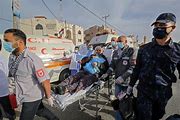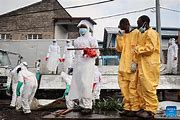The World Health Organisation (WHO) and the Africa Centres for Disease Control and Prevention (Africa CDC) have raised alarms as they officially declare the ongoing Mpox outbreak a Public Health Emergency of Continental Security (PHECS). This declaration comes after at least 13 African countries, including Burundi, Kenya, Rwanda, and Uganda, reported Mpox outbreaks.
“This is something that should concern us all,”
stated Dr. Tedros Adhanom Ghebreyesus, Director-General of WHO. The urgency of the situation was echoed by Africa CDC Director General Dr. Jean Kaseya who emphasized the need for swift and decisive action to mobilize resources across affected countries.
Amidst rising cases and fatalities related to Mpox in Africa, there are growing concerns about the lack of diagnostic capabilities and evidence suggesting a more severe scenario than currently understood. Professor Salim Abdool Karim highlighted these challenges stating,
“It’s clear that we’re facing a different scenario with far more cases.”
The significance of this declaration lies in its ability to unlock essential funding, strengthen Risk Communication and Community Engagement efforts, enhance surveillance and laboratory testing capacities while addressing health promotion needs including neglected tropical diseases. Despite being on the frontlines in combating infectious diseases with limited resources, Africa now requires global support to tackle this crisis effectively.
With Mpox causing fever, muscular aches, and large skin lesions in infected individuals – two vaccines recommended by WHO serve as crucial tools in curbing its spread. The recent surge caused by clade 1b subclade has posed greater challenges due to its higher fatality rate compared to previous strains.
Dr. Jean Kaseya stressed the importance of collaboration with international partners saying:
“We call on you to stand with us in this critical hour.”
This plea aims to garner support for response plans including vaccination distribution strategies across borders where transmission risks loom large.
Marion Koopmans from Erasmus University Rotterdam emphasized that despite having basic public health capacities in place globally; containing outbreaks like Mpox remains challenging due to resource constraints. The focus remains on investing in diagnostic capacity and treatment support alongside emphasizing vaccination drives.
As WHO sounds another alarm over an infectious disease outbreak following past declarations over H1N1 swine flu, poliovirus, Ebola among others; it becomes evident that global solidarity is imperative in overcoming such crises efficiently.
In conclusion, as African nations grapple with escalating Mpox cases demanding immediate attention – cooperation between local authorities and international entities will prove instrumental in containing the outbreak effectively before it spirals further out of control.









Leave feedback about this